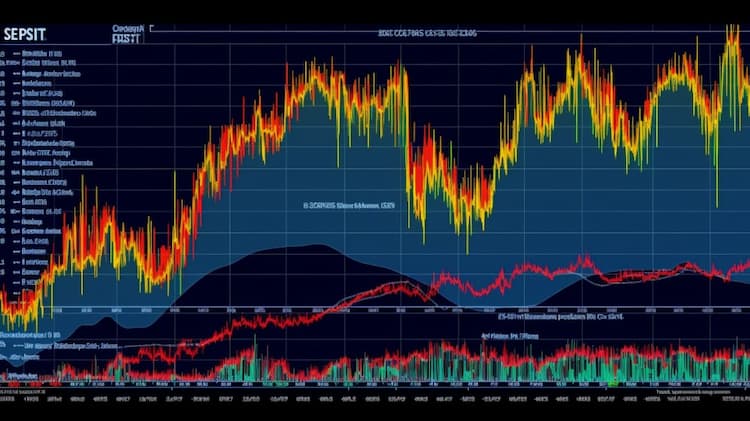
What are the Best REIT ETFs?
REIT ETFs provide investors with a convenient way to gain exposure to the real estate market. In this article, we will explore some of the best REIT ETFs available, considering their unique features and performance, to help investors make informed decisions when adding real estate to their portfolios.
Investing in REIT ETFs: A Lucrative Option for Real Estate Exposure
Real Estate Investment Trusts (REITs) provide investors with an opportunity to gain exposure to the real estate market without the hassle of owning and managing physical properties. REITs are companies that own, operate, or finance income-generating real estate assets. Investing in REITs can be a viable way to diversify an investment portfolio and earn passive income through dividends. For investors looking for exposure to REITs through exchange-traded funds (ETFs), several options are available. In this article, we will explore the best REIT ETFs that offer attractive investment opportunities in the real estate sector.
Comparing Vanguard Real Estate ETF (VNQ) and Schwab U.S. REIT ETF (SCHH)
Two popular REIT ETFs that investors often consider are the Vanguard Real Estate ETF (VNQ) and the Schwab U.S. REIT ETF (SCHH). These ETFs provide exposure to a diversified portfolio of real estate assets, including residential, commercial, and industrial properties. While both VNQ and SCHH track the performance of the real estate sector, there are some key differences to consider.
VNQ, managed by Vanguard, has a larger asset size and longer track record compared to SCHH. It offers exposure to a wide range of real estate companies, including those involved in retail, residential, office, and healthcare properties. VNQ has a lower expense ratio of 0.12% and includes over 180 holdings in its portfolio. On the other hand, SCHH, managed by Charles Schwab, focuses primarily on domestic real estate securities. It has a slightly lower expense ratio of 0.07% and holds around 115 stocks.
Both VNQ and SCHH provide investors with solid dividend yields, allowing them to benefit from the rental income generated by the underlying real estate assets. Additionally, they offer liquidity and diversification, making them suitable for long-term investors seeking exposure to the real estate market.
 REIT ETFs,SCHH,VNQ overlap What are the Best REIT ETFs?
REIT ETFs,SCHH,VNQ overlap What are the Best REIT ETFs?
The Benefits of Investing in REIT ETFs
Investing in REIT ETFs offers several advantages to investors. Here are four key benefits:
Diversification: REIT ETFs provide exposure to a diversified basket of real estate assets, reducing the risk associated with investing in individual properties. By investing in an ETF, investors gain access to a broad range of properties across various sectors and geographic locations.
Passive Income: REITs are required by law to distribute a significant portion of their earnings as dividends to shareholders. By investing in REIT ETFs, investors can earn regular income through dividends, which can be particularly appealing for income-focused investors.
Professional Management: REIT ETFs are managed by experienced portfolio managers who carefully select and manage the underlying real estate assets. This allows investors to benefit from professional management without the need to directly oversee properties.
Liquidity and Accessibility: ETFs can be bought and sold throughout the trading day on the stock exchange, providing investors with liquidity and flexibility. This accessibility makes it easier for investors to adjust their portfolios based on changing market conditions or personal investment objectives.
Considerations When Investing in REIT ETFs
While REIT ETFs offer compelling investment opportunities, there are a few factors to consider before investing:
Expense Ratios: Different REIT ETFs have varying expense ratios, which can impact the overall returns. It is important to compare expense ratios and choose ETFs with reasonable fees to maximize potential returns.
Portfolio Composition: Evaluate the holdings and sector allocations of the REIT ETFs. Consider whether the composition aligns with your investment objectives and risk tolerance. Additionally, analyze the top holdings to understand the underlying companies in the ETF.
Performance and Historical Data: Review the historical performance of the ETF, including total returns, dividend yields, and volatility. While past performance doesn't guarantee future results, it can provide insights into how the ETF has performed over time.
Investment Horizon: Determine your investment horizon and objectives. REIT ETFs can be suitable for both short-term and long-term investors, but it's essential to align your investment timeframe with the characteristics of the ETF.
Conclusion
Investing in REIT ETFs can be an effective way to gain exposure to the real estate sector and generate passive income through dividends. Among the best REIT ETFs, Vanguard Real Estate ETF (VNQ) and Schwab U.S. REIT ETF (SCHH) offer attractive investment opportunities with diversified portfolios of real estate assets. When considering REIT ETFs, it is crucial to evaluate expense ratios, portfolio composition, historical data, and investment horizons. By making informed decisions, investors can optimize their real estate investments and potentially benefit from the long-term growth and income potential of REITs.
Disclaimer: This article is for informational purposes only and does not constitute investment advice. The mentioned ETFs are used for illustrative purposes and should not be considered as specific recommendations. Investors should conduct their own research and consult with a qualified financial advisor before making any investment decisions.
Sources:
Vanguard Real Estate ETF VNQ
Schwab U.S. REIT ETF SCHH
Investopedia article on REIT ETFs
FAQ
What are the Best REIT ETFs?
The best REIT ETFs include funds such as the Schwab U.S. REIT ETF (SCHH), iShares U.S. Real Estate ETF (IYR), and Vanguard Real Estate ETF (VNQ). These ETFs are highly regarded for their focus on investing in real estate investment trusts (REITs) and providing exposure to the real estate sector.
What is the Schwab U.S. REIT ETF (SCHH)?
The Schwab U.S. REIT ETF (SCHH) is an ETF that aims to track the performance of the Dow Jones U.S. Select REIT Index. It offers investors exposure to a diversified portfolio of U.S. real estate investment trusts (REITs), providing broad coverage of the U.S. REIT market.
What is the iShares U.S. Real Estate ETF (IYR)?
The iShares U.S. Real Estate ETF (IYR) is an ETF designed to track the investment results of the Dow Jones U.S. Real Estate Index. It invests in a diverse range of U.S. REITs and real estate companies, providing exposure to various sectors within the real estate market.
What is the Vanguard Real Estate ETF (VNQ)?
The Vanguard Real Estate ETF (VNQ) is a widely recognized real estate ETF that seeks to track the performance of the MSCI US Investable Market Real Estate 25/50 Index. It offers investors exposure to a broad range of U.S. real estate companies, including residential, commercial, and industrial properties.
What are the advantages of investing in REIT ETFs?
Investing in REIT ETFs provides several advantages, including diversification across a portfolio of real estate assets, liquidity, ease of trading on the stock exchange, and potential for dividend income from REIT holdings. REIT ETFs allow investors to gain exposure to the real estate sector without the need for direct property ownership.

















